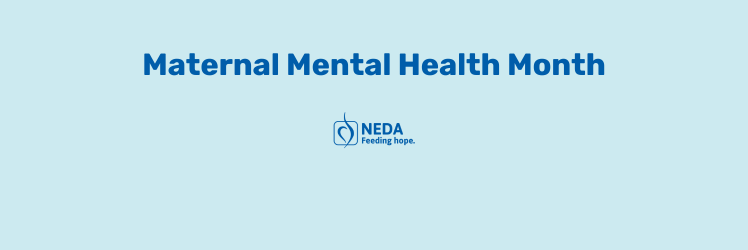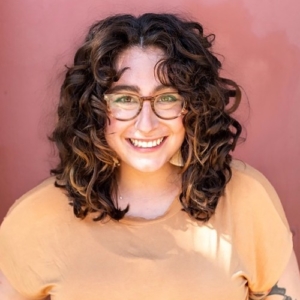Pregnancy with Disordered Eating
Pregnancy is a wild time. Not only are you flooded with hormones and opinions, but your body is changing. The body that you have been told to strive for perfection in, will no longer be the one you know. Messages targeted to cis women during this time mostly focus on the “bounceback”:
“Grow your child. But just big enough—the bigger they are, the harder it is to get your body back.”
“Rub shea butter obsessively on your skin to reduce the appearance of stretch marks! Oh, it’s genetic and this doesn’t really do much? Ridiculous!”
A major theme revolves around limiting the impact that this child has on your body—even as their impact on your life is going to be astronomical.
Having an eating disorder while pregnant brings up complicated feelings and impulses. This can be exacerbated by folks forgoing prescribed mental health medications out of fear of complications. I was one of them. Suddenly, Ed was back in full force. And shockingly, he is NOT an ideal birthing partner. I felt like a failure. Here I was, in the middle of what was supposed to be the most natural experience in my life– and I HATED it. I resented my baby, and was convinced that I was going to be an awful mother.
I wish I knew that I was not alone. Recently, I polled peers who struggled with eating disorders during pregnancy. One friend spent her second pregnancy trying to force herself to eat enough. As a result, she measured small for the duration of her pregnancy, and her son was born healthy, but a full pound lighter than his older brother. Thankfully, she now has professional mental health support, and worked with her team to reinforce habits that support recovery.
After giving birth I hid my struggles by making up excuses for why I lost the baby weight quickly and isolated myself. It took me much longer to bond with my baby past the biological connection we shared. Luckily, I realized I needed help. I contacted the NEDA’s former Helpline about my options, and confided in my partner about what was going on. As a result of completing treatment my life has become so much MORE. There are hard days, but I now have coping mechanisms and the support to lean on when needed. I struggle with the idea of having another baby, and worry about the impact that going through that process again could have on my recovery. But, I know I don’t need to figure that out now, and I am focused on enjoying every crazy, beautiful moment with my daughter.
If you’re struggling, please confide in someone you trust and get help—your partner, friends, family, doctors, or visit NEDA’s website. Eating disorders are complicated, and they don’t happen overnight. It is not a failure if an experience, even one as joyful as bringing a baby into the world, triggers you.
Allie Olivares is a graphic designer in Philadelphia. When she’s not in her studio, she is spending time with her family— her daughter, husband, and their many pets—reading a good book, recording an episode of her podcast devoted to highlighting folks who are kicking butt in their chosen fields, or doing a DIY project at her house that she doesn’t really have the skills to be taking on. After struggling with bulimia and binge eating disorder for the better part of 20 years, she is celebrating her first full year in recovery this week! Her experience with fighting her eating disorder while pregnant, along with her struggles with prenatal and postpartum mental health, make her passionate about the topic of Maternal Mental Health as a whole, and devoted to speaking about it honestly and compassionately.





